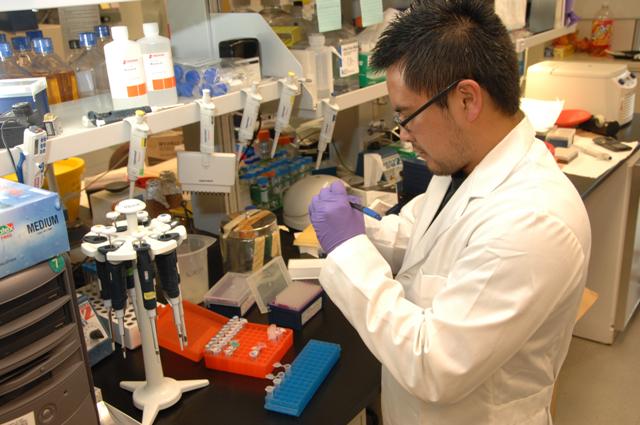A baby with DNA from two mothers and one father has been born in the United Kingdom as a result of an experimental new reproductive procedure.
According to the Catholic News Agency, the British government allows the DNA alterations for human embryos at risk of serious mitochondrial diseases.
Earlier this week, the Human Fertilisation and Embryology Authority (HFEA), a branch of the British health department, confirmed that the first baby in England was born as a result of the treatment. However, a report by The Guardian indicates there may be up to three more, according to CNA.
“Mitochondrial donation treatment offers families with severe inherited mitochondrial illness the possibility of a healthy child,” the HFEA said in a statement. “The HFEA oversees a robust framework which ensures that mitochondrial donation is provided in a safe and ethical manner.”
The agency said 32 families have been approved for the treatment so far through its Statutory Approvals Committee.
The experimental genetic procedure involves taking DNA from the eggs of two mothers and the sperm from one father in a lab to create a human embryo without mitochondrial defects, which are passed on through the mother. Then, the embryo is implanted in the mother’s womb.
Click here to sign up for pro-life news alerts from LifeNews.com
As scientists at the Charlotte Lozier Institute explain:
The technique of mitochondrial transfer seeks to replace deficient mitochondria in a mother’s egg with normal mitochondria from a second woman donor’s egg. A fertilized egg that has undergone mitochondrial replacement will have nuclear DNA from the mother and father, plus mitochondrial DNA from a woman donor, hence the name “3-parent embryo”. Scientists are actively researching mitochondrial transfer techniques using donated embryos and gametes. The goal is to develop therapies that may increase fertility rates and reduce mitochondrial disease. This technique was reportedly successful in 2016, with the birth of the first “3-parent embryo” child in Mexico.
In England, the HFEA said experts consider whether to approve the three-parent embryo treatments on an individual basis, and cautioned that the experiment is still in its “early days.” Therefore, the potential risks largely are unknown.
“These are still early days for mitochondrial donation treatment and the HFEA continues to review clinical and scientific developments,” the agency said. “… We understand that the team at Newcastle hopes to publish information of their mitochondrial treatment programme in peer reviewed journals shortly.”
Rebecca Taylor, a bioethics writer and molecular biology clinical laboratory specialist, and others have raised “morally problematic” concerns with the experimental new technology.
“Not only is it germ-line genetic engineering that will affect generations, but this techniques shares much with cloning which we know causes major birth defects in animals,” Taylor wrote in 2015 when British scientists first proposed creating three-parent children.
She pointed to research by Paul Knoepfler, a stem cell researcher at University of California Davis, who also expressed skepticism about the positive outcomes of the procedure.
“Animal studies are mixed as to whether this approach is safe,” Knoepfler wrote. “Some that are limited in scope are encouraging, while others have raised serious warnings. More studies, particularly in primates, would be needed for a conclusive determination. As this technology is highly experimental it is unknown if the human babies produced would be healthy. In fact, it might put them at risk.”








